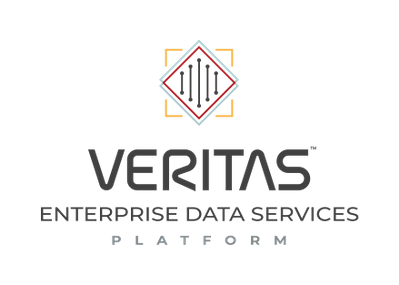Your Data Deserves a Strategic Partner

There’s no shortage of considerations when it comes to spending your IT budget. Do you enhance security or drive efficiency? At the same time, there’s no shortage of point solutions and products that can target any one of these areas effectively.
However, the reality is, nothing operates in isolation. The security, efficiency, and sustainability of your IT are interlinked, and there’s a common theme across them: data.
Given the significance of data across your business, it makes sense to look for a strategic partner to help you make the most of your data management strategy, rather than another point product that you need to combine with your other solutions. By definition, this partner will need to address more than one area – and recognise the relationship between them.

Choosing a Strategic Partner
Working with a partner across challenges certainly seems to be where the market is going. Just as we sign up to Apple, Microsoft, or Android for all our personal tech needs, more and more businesses are turning to technology platforms. Why? Abstracting complexities – because, over time, they are more cost-effective. If we know this intuitively, why do businesses sometimes fail to seek out a strategic portfolio?
The issue might be organisational. Different functions have responsibility for different areas. So, they tend to make decisions in isolation, selecting the best point products for their needs, but not necessarily for the needs of the overall business. It may also be that the person making an individual decision is aware of the issue on the ground – but less focused on the broader and strategic needs of the business.
A step back can give a clearer view. Data is one of the business’ most important assets. So, rather than reaching for numerous solutions to tackle the diverse areas it impacts, a better approach may be selecting a few key partners that can help you build a data management strategy.
After all, a strategic, integrated, and data-focused approach is the story behind some of the most impactful, disruptive businesses of our time. Think of Airbnb, Amazon, Uber, or Deliveroo, to name just a few. Conversely, their traditional incumbent competitors fell by the wayside because of the challenges of exploiting their different data resources and creating a competitive edge.
Creating a Data Management Strategy
So, what does a data management strategy entail? I highlight five tips:
1. Classify your data
The first job is to determine what data you have and the value or risk to the business. From this position, you’ll be able to make storing and managing it as efficient as possible – from cutting unnecessary duplication to uncovering the insights that add value to how you operate.
2. Define your data management policies
Once you have your data classes, you can build the policies that ensure your data is managed effectively and identify what regulations impact your business. The policies you put in place will help you to comply with these laws. Remember to make sure that your policies cover not just how you handle data but how third parties handle it (such as suppliers, outsourcers, and cloud service providers).
3. Implement data management tools that complement and support your processes
How will you meet your own policies? The right tools and processes will help you protect your data, keep your IT services available, and alert you to any contravention of your policies. It’s a good idea to have a consistent set of tools to deliver the core data management jobs of protection, availability, and insights across your entire IT estate – including your data centres and the public cloud platforms.
4. Ongoing review and refining your policies and processes
Internal drivers, like the needs or aims of your business, can change. So, too, will external factors like regulation. It’s important to assess your policies and processes continually – to stay resilient.
5. Continuous improvement with an open mindset
Keep up to date with best practices and new innovations. This will involve listening to the experiences and insights of your peers, suppliers, and other third parties. Consider joining communities within your chosen vertical markets, or work as part of an advisory forum. These are all good examples where you can gain feedback from peers.
Data: Your Most Important Asset
Data is critical to the modern enterprise, and it’s only growing in quantity and relevance. So, if you’re not managing and using your data as effectively as possible, it’s both a drain on resources and a limitation on your competitive potential. With the increasing threat of ransomware, bad publicity, and regulatory fees, failing to set the right strategy to manage your data effectively can be a significant risk to your business.
There’s nothing wrong with tactical deployments as part of an overall strategy, but a loose collection of point solutions could lead to a disjointed approach to data. That translates into a lack of visibility, poor control, and spiralling costs of management.
Given how significant data is to your success today, it’s likely your data deserves its own management strategy and a strategic partner to help bring together availability, protection, and insights: a partner that can tackle everything from ransomware to multicloud integration. If you need help developing a data management strategy, please get in touch with me and my team.
